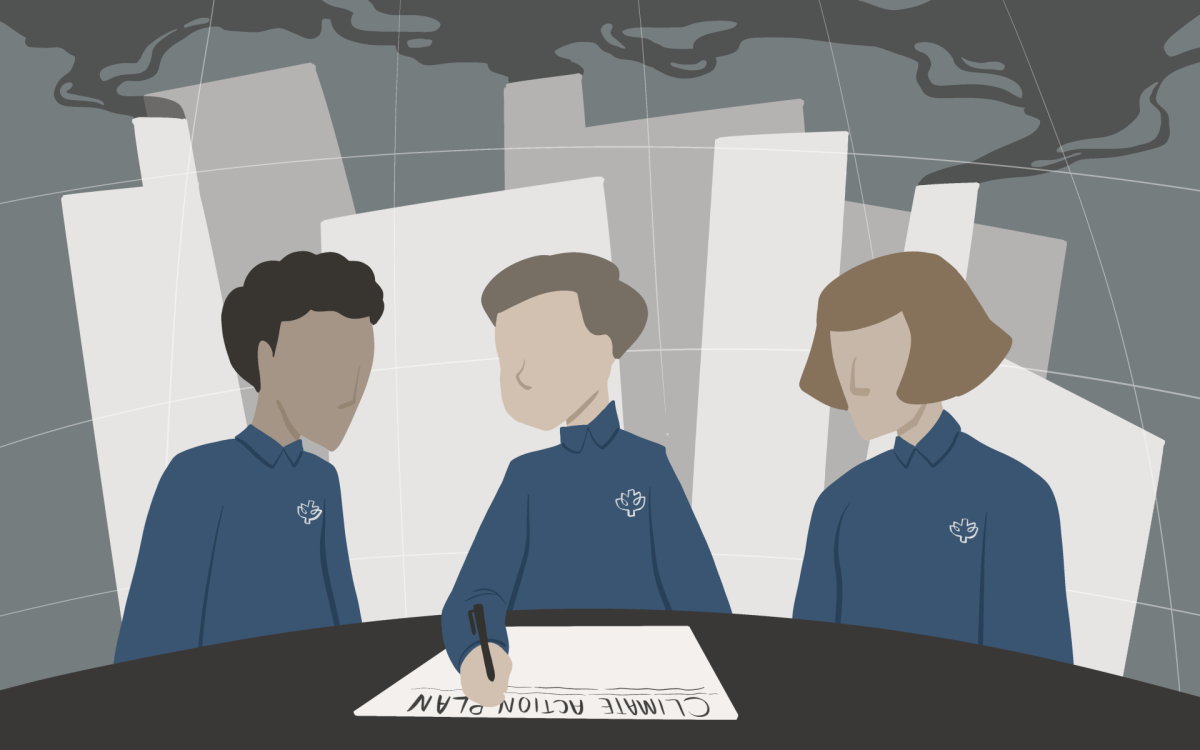Hundreds of accused prisoners have been captured and detained in the United States’ Guantanamo Bay detention camp as a means for fighting terrorism. The camp has been open for more than 10 years and Obama has been promising to shut it down since 2007.
Guantanamo Bay, sometimes referred to as Gitmo, is a detainment and interrogation facility that opened in January 2002 by the Bush administration in order to detain people who they believed to be connected with terrorism or extremist groups.
The Bush administration decided that the Guantanamo Bay detention camp could be considered outside U.S. legal jurisdiction and asserted that the detainees were not entitled to any of the protections of the Geneva conventions.
However, the U.S. Supreme Court overruled this decision June 29, 2006, and the detainees were said to be entitled to the minimal protection under the Common Article 3 of the Geneva Conventions.
Despite this, current and former prisoners have been tortured on camp grounds, and even though the Bush administration has denied this many times, an interview with Mohammed Al-Qahtani published in the Washington Post in 2009 revealed otherwise.
The UN has asked the U.S. to shut down the detention camp since 2006, but to no avail.
“The root problem is that the underlying conflict is of an ambiguous nature. It is somewhat like a law enforcement situation, which would call for trials and imprisonment for the guilty,” said Patrick Callahan, a DePaul professor who specializes in American Foreign Policy.
“But it is unlike law enforcement in that the reasons that the detainees are being held have nothing to do with violating U.S. laws in areas under U.S. jurisdiction,” said Callahan. “The situation is more like holding POWs in a war, but it is not a declared war, and the people being held were not soldiers wearing the uniforms of an enemy on the battlefield. In the cases of many individuals, their status is ambiguous.”
The biggest problem with Gitmo is that many of the prisoners held are either wrongly accused or held without charge. In September 2006, President Bush announced the 14 high value detainees were to be transferred to Guantanamo but as it turned out, none of the 14 figures had been charged with any war crime.
The April 25 Guantanamo Bay files leak (revealed on Wikileaks) revealed that more than 120 innocent Afghans and Pakistanis were held in the camp without charges. Many of the victims included farmers, chefs and drivers.
The files also revealed that some of these prisoners were either incredibly young like 14-year-old Naqib Ullah, or very old like 89-year-old Mohammed Sadiq. The files also showed that almost 100 detainees were diagnosed with depressive or psychotic illnesses as a result of their stay at the detention camp.
Not only are many of the prisoners suffering from mental abuse, but also physical and religious abuse. Prisoners released from the camp have claimed that there have been incidents of flushing the Qur’an down the toilet, defacing the holy book, and tearing pages out of it.
Red Cross inspectors and released detainees have spoken about the alleged acts of torture including sleep deprivation, beatings, and locking in confined cold cells.
According to a June 2005 “New York Times” opinion article, an FBI agent was quoted as saying, “on a couple of occasions, I entered interview rooms to find a detainee chained hand and foot in a fetal position to the floor, with no chair, food or water. Most times, they had urinated or defecated on themselves and had been left there for 18, 24 hours or more.”
Supporters of the detention argue that prisoners of war are never allowed the trial review of detentions, thus, it is okay to keep the supposed transgressors detained until hostilities have ceased.
Since the start of 2013, more than 100 of the 166 prisoners have gone on hunger strike in order to attract international attention to the issue as well as protest their sentences.
Sean Gleason, a Pentagon lawyer representing one of the detainees said, “I think that out of all the 166 detainees, only two have been convicted. The rest have never been tried or convicted of a crime. Many of them have been there for over 11 years.”
Gleason also mentioned that the commander in charge of facilities at Guantanamo went before Congress and asked for about $200 million to build new facilities at Gitmo, evidently meaning that they do not plan to shut down the camp any time soon.
Unfortunately, the prisoners’ attempt at a peaceful protest with the hunger strikes has been thwarted due to force-feeding. The detainees who have participated in the strike are being force fed with a tube through their nose.
Many of them have described it as one of the most painful things they have ever experienced. When asked whether or not he approved, Obama responded by saying that it was the only way considering he did not want the prisoners to die. However, it seems that the prisoners would much rather die than continue to live under the harsh conditions of this camp.
Walter Ruiz, who is also a lawyer defending a Gitmo detainee, stated that the fallout if someone were to die during the hunger strikes “would be huge. Already Guantanamo is kind of this new Devil’s Island, which just managed to sit there and fester and rot … So I think somebody dying would simply be just the exclamation point on what’s already a pretty bad situation.”
Professor Callahan asserts that the solution is not as simple as one might think.
“The unfortunate fact is that there are people and organizations out there who hate Americans (and Jews and Westerners) and who will kill our citizens and who cannot be stopped by law enforcement by decent states either because there is no effective state (Somalia, Yemen, Afghanistan) or because the state is not decent (Saudi Arabia) or both (Pakistan),” said Callahan. “Under those circumstances, something like the Bush Doctrine is reasonable and inevitable. That Obama’s policy is highly similar to Bush’s is highly suggestive of the reality in which we live.”







